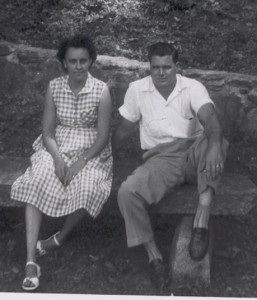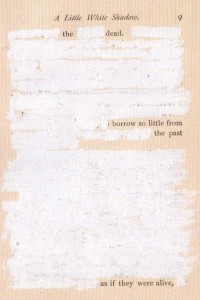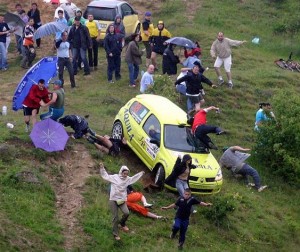Ask the Scientist

[via New Yorker excerpt of Playboy Interview with James Cameron.]
PLAYBOY: How much did you get into calibrating your movie heroine’s hotness?
CAMERON: Right from the beginning I said, “She’s got to have tits,” even though that makes no sense because her race, the Na’vi, aren’t placental mammals.
Happy Birthday, Captain Fiction!

Today is Gordon Lish’s birthday. On behalf of everyone here (not just on HTML, but on the whole internet): SALUTES TO THE CAPTAIN. … And thanks to David McLendon, whose Facebook post reminded me. So what will you do for Lish’s birthday?
You could buy a copy of Extravaganza.
You could listen to these Don Swaim interviews with GL.
You could review the complete history of our coverage of Lish and Lish-authors (warning: may not be complete), including the original series of Lish quotations for which I coined the Power Quote category. #1, #2, #3, #4+#5, #6.
What the fuck is cheese?
 In Dave Chappelle’s “what the fuck is juice?” joke, poor black people limited to sub-quality “purple drink” have no idea about the concept of juice as derived from an actual fruit. The racial implications of Chappelle’s humor are too complex for me to get into, and not what this post is about, so let’s just say I find the joke profound. In D.F. Wallace’s “This is Water” speech, wherein fish, asking “what is water?” take for granted the most essential constituent of their existence, Wallace ends by telling us “this is water,” meaning, we are the fish, and that cognizance of the things around us, which leads to positive/proactive thinking, is our responsibility. (Of course, one thinks about the last decision he made, an act which deserves reticence.) And so, dear writerly people, at this juncture I ask you what the fuck is cheese?
In Dave Chappelle’s “what the fuck is juice?” joke, poor black people limited to sub-quality “purple drink” have no idea about the concept of juice as derived from an actual fruit. The racial implications of Chappelle’s humor are too complex for me to get into, and not what this post is about, so let’s just say I find the joke profound. In D.F. Wallace’s “This is Water” speech, wherein fish, asking “what is water?” take for granted the most essential constituent of their existence, Wallace ends by telling us “this is water,” meaning, we are the fish, and that cognizance of the things around us, which leads to positive/proactive thinking, is our responsibility. (Of course, one thinks about the last decision he made, an act which deserves reticence.) And so, dear writerly people, at this juncture I ask you what the fuck is cheese?
Cheese, that which is cliche, corny, sentimental, and all other vague no-nos subject to interpretation. “Saint Judas” by James Wright, one of my favorite poems, tip toes on cheesiness with lines which I’ve strike-thoughed:
Source Material
 As Justin pointed out, the New York Times reports today that the Mississippi plantation diary of a wealthy slave-owning Mississippian has been found that Faulkner consulted often to find names and incidents to use in his work. The son of Faulkner’s friend recalls that when reading the diary, “Faulkner became very angry. He would curse the man and take notes and curse the man and take more notes.”
As Justin pointed out, the New York Times reports today that the Mississippi plantation diary of a wealthy slave-owning Mississippian has been found that Faulkner consulted often to find names and incidents to use in his work. The son of Faulkner’s friend recalls that when reading the diary, “Faulkner became very angry. He would curse the man and take notes and curse the man and take more notes.”
I can relate.
For about three years, I worked on a never-finished manuscript about my mother’s family. While I went back and forth, for part of the time I wrote it as a fictionalization, so I made up new names for all my relatives. To help, I consulted a family genealogy book called The Descendants of Robert Kay. Robert Kay was my great-(x7 or 8)-grandfather on the side of my mother’s mother’s mother’s mother, one Miss Viola Verona Kay King (pictured: one of her sons). Robert Kay was himself a wealthy, slave-owning cotton farmer in the 18th century. The first few pages of the book tell about how he came to Anderson County, South Carolina (where my mother grew up) from Virginia.
All sides of my family have lived in the South as far back as anyone can trace. But it’s one thing to figure that my ancestors probably owned slaves, and quite another to see a list like the one unceremoniously provided on page 9 of The Descendants of Robert Kay. Here’s an excerpt from the inventory of his property up for sale:
One Girl Silvia seven years of age $250.00
One Girl Winifred five years of age 150.00
One Girl Delilah 80.00
One Large Iron Pot 5.00
One ditto 3.00
One Pot and Skillet 3.00
One kittle, frying pan, and three pairs of pot hooks 2.75
Rebecca Brown on failure: “Because failing as an artist is a necessary thing, a thing I wish I could more easily accept.”
Read, Listen, Think, Go
![]()
The Rumpus has got Steve Almond on “Why I Went Ahead and Self-Published.”
TNR’s The Book has reprinted Auden’s “A Preface to Kierkegaard” from their May 15, 1944 issue. First sentence: “In a just world, translators would be paid ten times as much as authors.”
NYT reports that the diary that Faulkner used as the inspiration for the grandfather’s ledger in Go Down, Moses has been discovered. “The original manuscript, a diary from the mid-1800s, was written by Francis Terry Leak, a wealthy plantation owner in Mississippi whose great-grandson Edgar Wiggin Francisco Jr. was a friend of Faulkner’s since childhood. Mr. Francisco’s son, Edgar Wiggin Francisco III, now 79, recalls the writer’s frequent visits to the family homestead in Holly Springs, Miss., throughout the 1930s, saying Faulkner was fascinated with the diary’s several volumes. Mr. Francisco said he saw them in Faulker’s hands and remembers that he ‘was always taking copious notes.’ ”
The Poetry Foundation has got Tao Lin analyzing five love poems by Michael Earl Craig, Matthew Rohrer, Joshua Beckman, Chelsea Martin and Ben Lerner. Quoth Tao from the thesis: “I have limited my thoughts to a context of “romantic relationships.” I have included, as the last sentence of each set of thoughts, when I would most like to be forced to read each poem for the first time (if I hadn’t already read them).” And on Ben Lerner’s “Mad Lib Elegy”: “Out of the poems in this essay I think I would most be interested in a psychology experiment—of which I would also like to be a participant—where one hundred people who have just been “dumped” to emotionally devastating results in the past hour are forced to read this poem then interviewed about their experience, with accompanying brain-scans.”
Ian Vanek from Japanther on Note Books at Largehearted Boy— Note Books being the feature where musicians discuss books like they like, as opposed to Book Notes, where authors discuss music they like.
And for NYC folks, tonight is the Greatest Three Minute Rock N Roll Story Ever at Bar Matchless in Lower Greenpoint. I’ll be one of over a dozen readers, including Jami Attenberg, Zachary German, Kendra Grant Malone, Franz Nicolay, Lincoln Michel, and James Yeh, who is also hosting the event along with Jason Diamond of Vol 1 Brooklyn, which itself is the site I ganked the DeLillo and Japanther links from. Come on out and see us why don’tcha? There’ll be booze specials, The Wailing Wall will play, and each reading will run 3 minutes or less.
IT’S ON: HOUSING WORKS SAYS EFF SNOW, EFF LOVE, EFF IT ALL EXCEPT FOR EFFING THIS EVENT, WHICH IS NOT EFFED, BECAUSE IT IS HAPPENING

This is Brooklyn right now
This is an NYC Area Alert: in two hours, Sam Lipsyte, Colson Whitehead and Heidi Julavits will be reading on behalf of Harper’s as part of Love: A Rebuke, at Housing Works Bookstore and Cafe. Schools are closed. Roads are treacherous. Love sucks. And literature–well, she marches (anyway, stumbles through snowdrifts) bravely on! I am leaving my house for the first and presumably only time today to catch this awesomeness. Hope to see you there.
February 10th, 2010 / 5:59 pm
Writing/Editing Prompt: Vitiligo

Turns out, Michael Jackson really did have vitiligo. All this time, I’ve assumed—like so many others—that he was bleaching out his skin to look whiter. (Which belief now has me questioning myself pretty seriously. So I’m under the impression one of the richest black entertainers in the world was, when given the resources to fulfill his deepest yearnings, at the very core of his being he found that he wanted most of all to look like me? How’s that for arrogance.)
Anyway, as a kind of tribute to the guy, let’s subject some of our writing to a little vitiligo, shall we? Much like Mary Ruefle (oh, God. Mary Ruefle!) did with her book A Little White Shadow, take a printed page (or two, or three, or 60) and go at it with the white out. But use your own writing—not the writing of some other person. Infect your own work with vitiligo as a way of apologizing for never believing that Michael Jackson had vitiligo.
Remember: vitiligo spreads from a single point. It grow. Start at a single word and move around to surrounding words. Be deliberate, though, so some kind of meaning remains. (Note that I say some kind of meaning. Feel free to define that however you want. Feel free to consult this Poetry Foundation article by Ross Simonini.)
For ADVANCED students: spread your white spots without paying to what you are vanishing. Just make stuff go away. And then, as Michael Jackson did, go right ahead and perform some plastic surgery on what’s left over in order to find a new story in the wreckage of the old. Shaves some letters off the words. Add some letters to the words. Pull some letters from one word and give them to another. Make up some words and add them to the piece of writing. Take some words from the dictionary and add them to the piece in a place that makes the piece look nice. (That is, use the skeleton of the old work to write something new. Maybe keep the skeleton in place, though. You don’t want the body to fall into a heap.)
(Right?)

